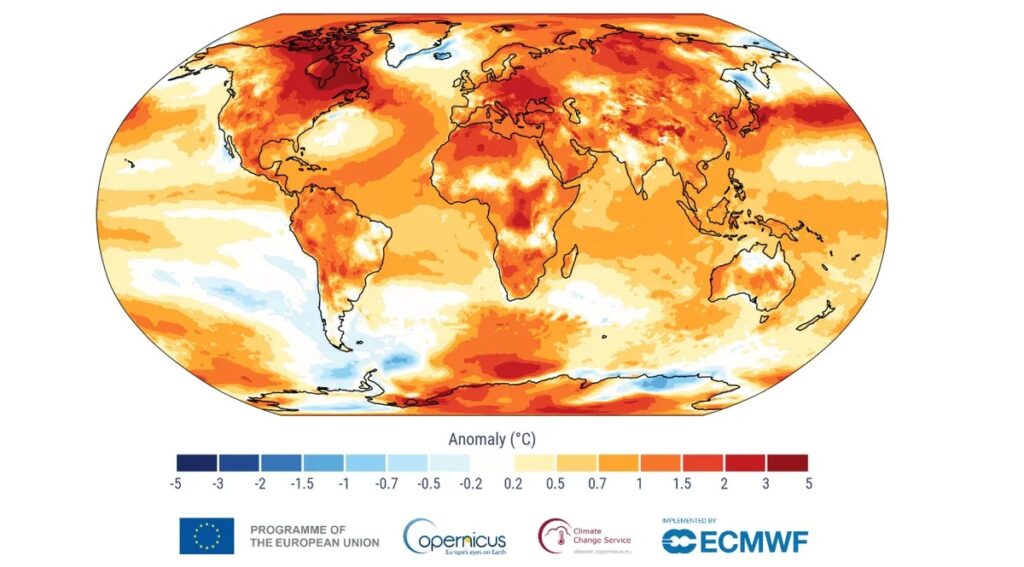
The year 2024 etched its place in history as the hottest year ever recorded. With global temperatures breaching the critical 1.5°C threshold above pre-industrial levels for the first time, this milestone underscores the escalating climate crisis affecting millions of lives worldwide.
According to reports from NASA, NOAA, the UK Met Office, and the World Meteorological Organization (WMO), the global average temperature reached 15.1°C (59.18°F) in 2024. This marked a 1.6°C (2.88°F) rise above pre-industrial levels, driven largely by human-induced climate change and compounded by the natural El Niño climate cycle.
The Paris Agreement in Jeopardy
This alarming development challenges the core objective of the Paris Agreement, which seeks to limit global temperature increases to “well below 2°C” with a targeted limit of 1.5°C. The breach of this threshold is a stark reminder of the urgent need for bold, collective action to mitigate further damage.

“Blazing temperatures in 2024 require trail-blazing climate action in 2025,” remarked UN Secretary-General António Guterres, urging world leaders to intensify their efforts to combat the climate crisis.
Alarming Climate Records
The heatwave of 2024 shattered numerous climate records:
- Sea Surface Temperature: Annual global sea surface temperature hit an all-time high of 20.87°C (69.56°F), surpassing the 1991–2020 average by 0.51°C (0.92°F).
- Atmospheric Water Vapor: The total water vapor in the atmosphere was 5% above the 1991–2020 average, intensifying weather extremes.
- Daily Global Temperature: On July 22, 2024, the daily global average temperature hit a record 17.16°C (62.88°F).
- Heat Stress: By July 10, 44% of the planet experienced “strong” to “extreme” heat stress.

Image credit: Credit: C3S / ECMWF
Unrelenting Human Impact
Behind these figures lies a profound human story. Millions of lives were upended by extreme weather events, including devastating heatwaves, unprecedented rainfall, and rising sea levels. In the contiguous U.S., the average annual temperature soared to 13°C (55.5°F), making 2024 the nation’s hottest year on record. At least 17 states reported their warmest years.
As atmospheric levels of carbon dioxide and methane reached record highs of 422 ppm and 1,897 ppb respectively, the message is clear: humanity must act decisively to alter its trajectory.
“These high global temperatures, coupled with record global atmospheric water vapor levels, led to unprecedented heatwaves and heavy rainfall events, causing misery for millions of people,” noted Samantha Burgess, Climate Strategic Lead at the European Centre for Medium-Range Weather Forecasts.
The Path Forward
With 2025 on the horizon, the need for trailblazing climate action is more urgent than ever. The climate crisis is no longer a distant threat; it is a present reality. The world’s response will define the future of our planet and the generations to come.

Leave a Reply